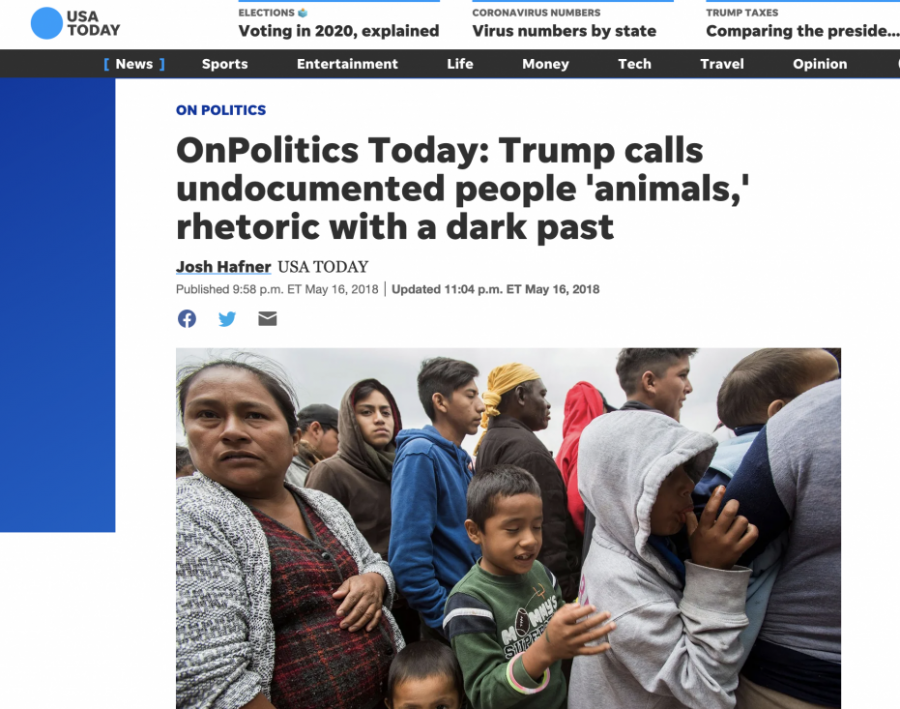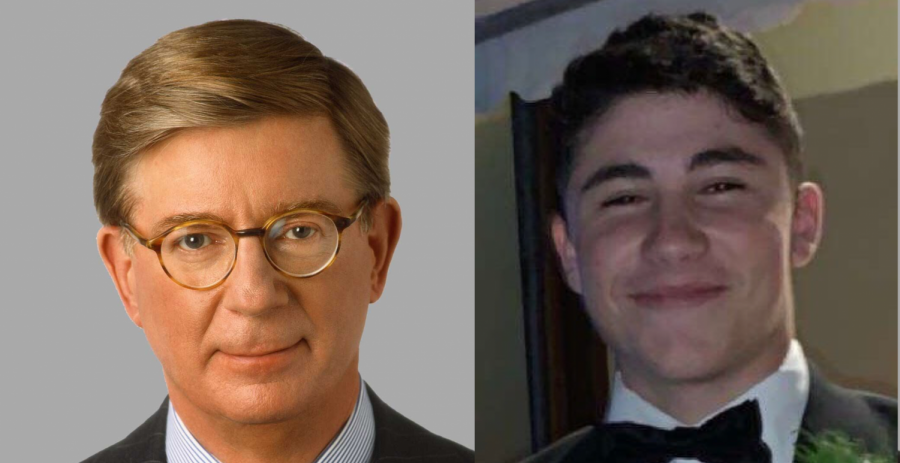The Erosion of Objective Discourse: A Conversation with George F. Will
Students of our generation have felt enormous pressure to find their individual identities. Often, it can feel quite difficult to do so through the sheer amount of “noise” and disinformation at all levels of our political system. Add the stress of high school and college, and for many, it is easiest to inherit the perspectives of the ones we admire most, whether it be parents or grandparents.
However, I have always felt the need to diverge from the traditional. My own journey started where most Gen Z and millennials get their news: social media. Trying to expand my horizons, I followed both conservatives and liberals, Republicans and Democrats. However, I quickly realized that there was a real lack of objectivity in the realm of virtual discourse. The conventional post was either a targeted attack, an unsupported opinion, or just plain nonsense. The goal of users was not to present facts but to spoon feed their followers opinions. I began to do something my favorite author, George Will, says we need to do more of: “Read… printed words.” It became indisputable to me that to form an opinion, one needs to understand the facts and have the ability to think critically.
Even as we are the first generation to grow up in an age of limitless information, it often feels like there is a considerable lack of objective opinions. The degradation of factually backed discourse can be largely attributed to social media. As explained by the documentary The Social Dilemma, the goal of Facebook/Instagram is to have the greatest number of user interactions; they will display what you are statistically most likely to click on. It is human nature to read what affirms our predetermined beliefs (i.e. confirmation bias). It is plausible, therefore, that a large percentage of my generation does not have much exposure to dissenting opinions, unless they are actively looking to understand opposing views. It should be no surprise that a generation that has been selectively spoon-fed information is the most politically divided in the history of our nation.
I recently reached out to the very person I admire so greatly, George Will, Pulitzer Prize-winning author of The Conservative Sensibility. Mr. Will has long been a figure whom I look up to for his commitment to reason, truth, and historical principles. Mr. Will remains true, not to a time in history, but to the principles that were set forth by our country’s founders. I asked Mr. Will about his understanding of the dilemma faced by our nation’s youth and the decline of objective discourse. However, our conversation began with a discussion about the absence of objectivity at the highest levels of leadership.
The current president has made a record 20,000+ misleading statements (and counting). However egregious, the effects of his lies have surprisingly trickled down to the ones who push back against him the most, the media. In our conversation, Mr. Will confessed to “yield[ing] to no one in [his] dislike of Mr. Trump.” He continued, however, with the idea that “some people think that their dislike of Mr. Trump entitles them, indeed requires them to suspend journalistic objectivity.” I see this neglect quite often. In this USA today article, we see journalistic bias at work:

SHERIFF MIMS: “Thank you. There could be an MS-13 member I know about — if they don’t reach a certain threshold, I cannot tell ICE about it.”
THE PRESIDENT: “We have people coming into the country, or trying to come in — and we’re stopping a lot of them — but we’re taking people out of the country. You wouldn’t believe how bad these people are. These aren’t people. These are animals.”
Our president is not known for his eloquence, let alone his verbal filter. However, the media’s utter disregard for context and truth is undoubtedly politically motivated. In the article above, USA today attempts to give the impression that President Trump believes all undocumented immigrants are “Animals,” when he was clearly referring to MS-13 gang members (who make up a small percentage of undocumented immigrants). This manipulation occurs far too often. It is no wonder that 77% of Americans think that traditional media outlets spread fake news. An all-time high.
It is also no surprise that the younger generations have turned to social media as their primary form of news. A Pew Research Center study found that 48% of Americans, 19 to 29 years old, get their news primarily from Social Media.
As Will explained in our dialogue, “We are in the midst of an enormous social experiment with social media. People are, their behaviors, their mental circuitry…has to be changed and affected by the constant recourse to instant communication, often graphic communication on devices, with pictures. That has to be, over time, a different neurological wiring of people than you get from a largely print culture.”
Our society is changing as a result of rapid technology. Deep reading for the purpose of critical thinking and true understanding has been replaced with the memorization of superficial talking points. In reality, that is what social media provides us with. If, as a generation, we don’t take the time to understand text on a page, how do we expect to understand each other? The basis of our democracy relies on understanding one another: compromise.
I asked Mr. Will how our nation could adapt to survive this era of instant gratification. He reminded me that “the fundamental conservative insight is that nothing lasts. Two words. Nothing lasts.”
However, he continued, suggesting that we “have to go back to why the first amendment matters. Why freedom of speech matters. Why the spirit of liberty is, as Judge Learned Hand once said, ‘The spirit of not being too sure of yourself.’ Not too sure that you’re right. The general sense that, as Oliver Wendell Holmes said, ‘Time has defeated many fighting faiths.’ There is nothing like some education here to understand the vicissitudes and ambiguities of history.”
It is almost impossible to truly understand history without opening its books. “The most important things are still in books,” Will said.
Our generation needs to read. Read like the survival of our republic depends on it.
The world belongs to people who know things.
— George Will

James Srebnick is an Opinions columnist and a web editor for The Catalyst. His focus is primarily on politics. This is James' first year as part of The...



![Leyla Amjad 26: Being Muslim, its just really hard to find people who relate to you when they dont share [your] experiences.](https://recatalyst.org/wp-content/uploads/2024/02/IMG_9831-600x390.jpg)
